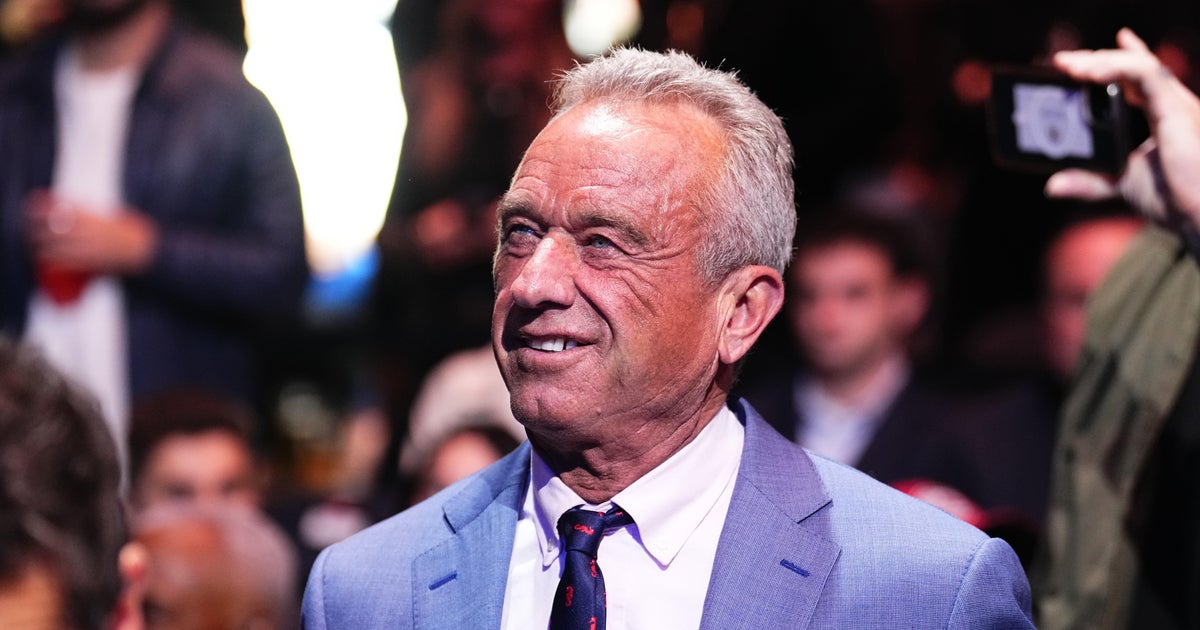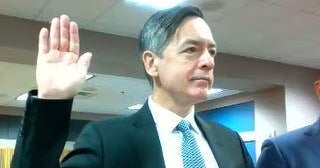Judge says prosecutor can’t question fake elector in Georgia 2020 election investigation

The prosecutor who’s investigating whether former President Donald Trump and his allies illegally tried to interfere in the 2020 election in Georgia cannot question a lawmaker who signed a certificate falsely stating that Trump won the state, a judge ruled Monday.
Superior Court Judge Robert McBurney agreed with Republican state Sen. Burt Jones that Fulton County District Attorney Fani Willis had a conflict of interest because she hosted a fundraiser last month for Jones’ Democratic opponent in November’s election for lieutenant governor. McBurney said during a hearing last week that Willis’ decision to host the fundraiser was “a ‘What are you thinking?’ moment. The optics are horrible.”
Willis can still ask other witnesses about Jones, the judge said, but will not be able to bring charges against him. Instead, the Prosecuting Attorneys’ Council of Georgia, a nonpartisan association of Georgia district attorneys, should appoint another prosecutor to decide if any charges should be brought against Jones, one of 16 Georgia Republicans who falsely claimed to be the state’s “duly elected and qualified” electors.
“Today’s ruling is a huge win for our campaign — but more importantly, for due process and the rule of law in Georgia,” Jones said in an emailed statement.
Willis’ office was still reviewing the order and didn’t have an immediate comment, spokesperson Jeff DiSantis said.
CBS affiliate WGCL
The judge’s decision Monday likely has no real bearing on the future of Willis’ overarching investigation into what she has called “a multi-state, coordinated plan” by Trump’s campaign to influence the results of the 2020 election. But it served as a rebuke of Willis and provided ammunition to her critics who have accused her of pursuing a politically motivated case.
McBurney said in his order that Willis was within her rights to host the fundraiser but that her decision “has consequences.”
“She has bestowed her office’s imprimatur upon Senator Jones’s opponent. And since then, she has publicly (in her pleadings) labeled Senator Jones a ‘target’ of the grand jury’s investigation,” the judge wrote. “This scenario creates a plain — and actual and untenable — conflict. Any decision the District Attorney makes about Senator Jones in connection with the grand jury investigation is necessarily infected by it.”
Willis serves as the “legal advisor” for the special grand jury and she and her prosecutors “largely shape the grand jury’s investigation by subpoenaing witnesses and leading their questioning,” McBurney wrote in his order.
The order says Willis and her team cannot subpoena Jones or seek to obtain any records from him, may not publicly categorize him as a subject or target of the special grand jury’s investigation and may not ask the special grand jury to include any recommendations about him in its final report.
McBurney denied a request from 11 of the other people who signed the false electoral certificate to disqualify Willis from matters regarding them and also declined to quash subpoenas for them.
Willis opened the investigation last year, and a special grand jury was seated in May at her request. The special grand jury cannot issue an indictment but instead will issue recommendations when its investigation is done. It will then be up to Willis to decide whether to seek an indictment from a regular grand jury.
World News || Latest News || U.S. News
Source link




